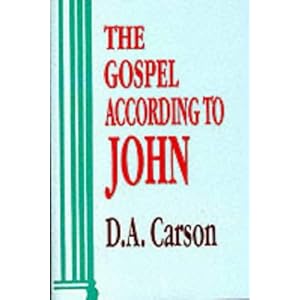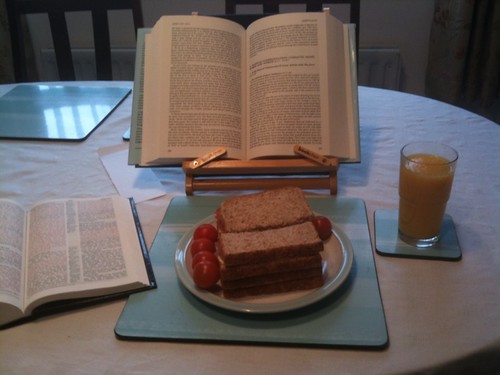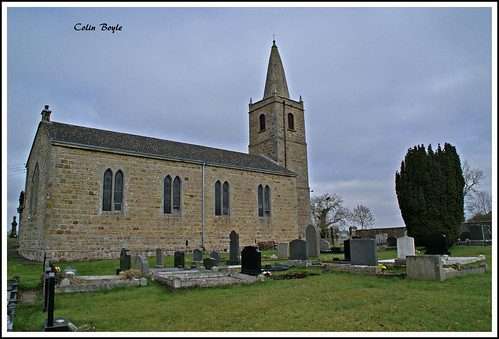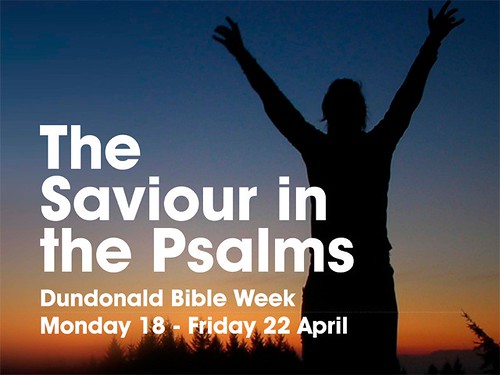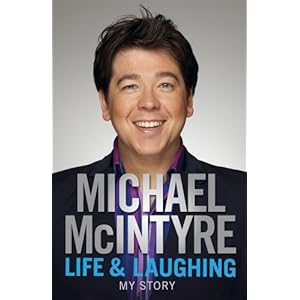Everyone is searching for life, and a bit more of it. Whether it is the TV programmes that want to make you ‘Ten Years Younger’, the home, fashion and lifestyle magazines with top tips for living, or the people having their bodies frozen in the hope of being revived when science catches up with science fiction. Even though most people refuse to admit to it and won’t talk about it, we are slowly but surely progressing towards our own death. The language might be moderated, so that funeral directors and undertakers become ‘bereavement centres’, but no matter what we call it, death is coming, and so we try to find life.
It could be the mid-life crisis that drives a man to buy a motorbike to convince himself that he’s still young; it may be the thousands spent on plastic surgery or cosmetic surgery to reverse the signs of ageing; whatever it is, people try to find life in all sorts of ways and pursuits. The tragedy, though, is that in trying to find life, they ignore the only source of real life, the life-giver, who offers real, true, eternal life. You see, John tells us how we can have life - it’s the reason he wrote his gospel. Look at the very end of chapter 20: ‘these are written so that you may believe that Jesus is the Christ, the Son of God, and that by believing you may have life in his name.’ You can have life - and it comes through believing, through trusting that Jesus is the Christ, the Son of God, and by throwing all your weight on him, depending on him.
So John says that the things he has written down, the things that he witnessed, they point to Jesus the Christ. It’s helpful to remember this every time we read John’s Gospel - we’re told his purpose for writing. So if you’re stuck as you read a part of John, remember the purpose, and that could well help you understand the particular section. Now if that’s so for the whole of the gospel, then it’s true for the resurrection records as well. These resurrection records are written so that you may believe Jesus is the Christ, the Son of God, and that by believing you may have life in his name.
Over the next few weeks, we’re going to look at these events after Good Friday, the resurrection appearances John records for us - and ask, how can we be certain that Jesus is the Christ, so that we believe, and have life in his name?
Tonight, we begin with those first ten verses. Can we be certain that Jesus is the Christ from this passage? For the next few minutes, I want you to imagine that we are in St Elizabeth’s Court. Not the old rectory with sheltered accommodation, but that this is a court. We’re going to hear the eyewitness evidence from some key witnesses. As the passage was read, you might have noticed the repeated word: saw. We’re going to hear what Mary, John and Peter all saw; examine the evidence, and decide on your verdict.
First up, we have what Mary saw. Verse 1: ‘Mary Magdalene came to the tomb early, while it was still dark, and saw that the stone had been taken away from the tomb.’ The tomb was cut out of the rock, like a cave, and a big stone sat in front of the entrance, closing it over - but the stone wasn’t where it should be. We see from the next verse what Mary thought had happened: ‘So she ran... and said to them, “They have taken the Lord out of the tomb, and we do not know where they have laid him.”’
You see, when Mary gets to the tomb and finds the stone rolled away, her first thought isn’t that Jesus is alive - it’s that his body has been stolen. Now you might ask yourself why she would think that, but you need to remember that you’ve heard this story many times, you know how it ends. If Tim will excuse me for using this illustration again, it’s a bit like the movie Sixth Sense. I’m very sorry if you’ve never seen it and I’m about to spoil it for you, but basically the film revolves around a little boy who can seemingly see dead people, going about their daily business. He befriends Bruce Willis, and they talk regularly. The twist comes at the end, when Bruce suddenly realises that he is actually dead. If you watch the film again, it all makes sense - you wonder how you missed that fact the first time round. In a similar way (but reversed), we can be like this with the Gospels. you read through the passion and crucifixion knowing all the time that Jesus is going to rise. It’s ok, you want to say, we know he’ll be alive on Sunday.
The diciples weren’t expecting it. Mary doesn’t immediately think that Jesus is alive. His body must have been stolen. All we know for certain is that there is no body. The tomb is empty.
Our second witness is the disciple whom Jesus loved. A lot of ink has been spilled on his identity, but it’s safe to say this is John himself - rather than writing his own name, he refers to himself in this way, because he has personally known and received Jesus’ love. He and Peter set off on the race to the tomb, having heard what Mary saw. John, the younger of the two, makes it to the tomb first, but he doesn’t go in - he just stoops at the entrance. And what is it he sees?
‘He saw the linen cloths lying there, but he did not go in.’ We call it the empty tomb, but John sees the linen cloths, prompting James Montgomery Boice to call it ‘the not-quite-empty tomb.’ What were these linen cloths? Look back to 19:40. After Jesus had died, Joseph of Arimathea and Nicodemus come to bury Jesus in the tomb. They bring almost five and a half stone of spices, myrrh and aloes, and some linen cloths. ‘So they took the body of Jesus and bound it in linen cloths with the spices, as is the burial custom of the Jews.’
The cloths are wrapped around the body, with the spices in between the layers of wrapping. But now, as John sees from outside, the linen cloths are there, but the body isn’t. It’s not that you could unwrap the cloths and they arrange them the same way - rather, it’s as if the body has just vanished, and the cloths remain as they were, collapsed under the weight of the spices.
So as John retires from the witness stand, we now know that the body has disappeared, but it’s not just that it has been removed - it has supernaturally passed through the graveclothes (and so it wasn’t as if the stone was rolled away to let Jesus out, but rather to let the witnesses in to see the empty tomb).
Peter is up next, the slower runner, but the more forward of the two, so characteristically, he blarges on into the tomb. What does he see? In a way, his testimony is similar to John’s, with one further detail provided - ‘He saw the linen cloths lying there, and the face cloth, which had been on Jesus’ head, not lying with the linen cloths but folded up in a place by itself.’
In the Jewish custom, the head was wrapped in a separate piece of cloth - in one sense the words in the ESV ‘face cloth’ makes you think of a hanky sized piece of material that you would use to wash yourself with. It was actually fairly big, wrapped like a turban around the head of the deceased. We find the same thing with Lazarus - ‘his face wrapped with a cloth.’ There in the tomb, Peter sees that it retains the shape of being wrapped, but is separate from the linen cloths.
It wasn’t that (as some people imagine), Jesus simply woke up and then unwrapped himself and stumbled outside; nor that someone else unwrapped his body and stole it - the cloths remain in position, but the body has gone.
As we review the evidence, let’s think carefully what it all means. The tomb is open, but the body hasn’t been stolen - the linen graveclothes remain. The body hasn’t simply been unwrapped - the linen clothes remain in position, and the face cloth is in its own place, still as it had been. The evidence points in only one direction - Jesus is alive. It’s the conclusion John reaches, as we come to the final ‘saw’.
‘Then the other disciple... also went in, and he saw and believed; for as yet they did not understand the Scripture, that he must rise from the dead.’ John saw and believed that Jesus must be alive. But the remarkable thing is that they really should have known all along. We mentioned earlier about Mary expecting to find a dead body, not a living Lord - Peter and John came with the same expectation.
It’s very honest of John here, isn’t it - repeatedly in his gospel we find him admitting that the disciples were a bit useless at understanding what Jesus was saying and about what was happening. So here, ‘as yet they did not understand the Scripture, that he must rise from the dead.’ Jesus is the Christ, we can be certain of it, because God raised him from the dead, as he had promised beforehand in the Scriptures. There’s no hint as to which Scripture John actually has in mind, but it’s probably Psalm 16:10, which Peter preaches on the day of Pentecost: ‘For you will not abandon my soul to Sheol, or let your holy one see corruption.’
All this week at the Dundonald Bible Week, we’ve been focusing on the Saviour in the Psalms - seeing how the story of Jesus is promised and predicted and prophesied in the Psalms. The details are fulfilled to the letter - we can be certain therefore that Jesus is indeed the Christ. And as we believe him, we will have life in his name. It’s not just made up, it’s not just clever stories. The eye witness evidence is clear: Jesus is alive.
Albert Henry Ross set out to write a book showing that the resurrection was a myth, but as he examined the evidence, he wrote a quite different book - Who Moved The Stone? Jesus is alive - as we believe in him, we can be sure of having life - eternal life, better than just looking ten years younger.
This sermon was preached in St Elizabeth's Church, Dundonald on the evening of Easter Sunday, 24th April 2011.


